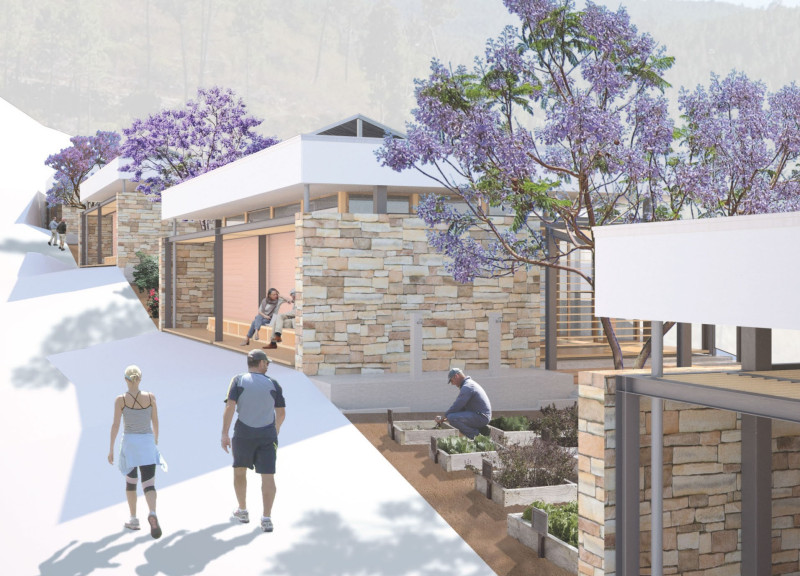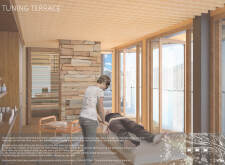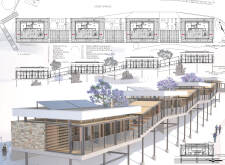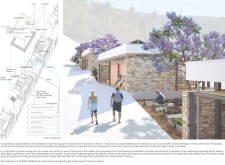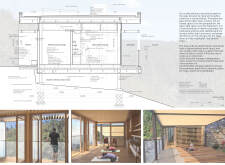5 key facts about this project
Design Functionality and Space Utilization
The primary function of the Tuning Terrace is to provide a restorative environment that facilitates physical and mental healing. The layout features an organized arrangement of cabins along a walkway, creating a sense of connectivity and ease of movement. This spatial arrangement supports individual journeys, allowing users to navigate through therapeutic paths while being surrounded by nature.
Natural light plays a crucial role in the design, facilitated by large glass panels that allow unhindered views of the landscape. Each cabin is equipped with therapeutic spaces that can adapt to various activities, such as yoga and meditation. This adaptability caters to diverse user needs and enhances the overall experience. Furthermore, the integration of communal gardens fosters interaction among users, providing a space for social connectivity and relaxation.
Innovative Integration of Natural Materials
A defining characteristic of the Tuning Terrace is its commitment to sustainable practices through the use of natural materials. The project employs locally sourced wood and stone to harmonize with the surrounding landscape. Wooden elements bring warmth and comfort, enhancing the user experience, while stone cladding provides durability and visual continuity with the natural environment.
Structural components use steel, designed to maintain stability while minimizing site disruption. The incorporation of solar panels reflects a proactive approach to energy efficiency, contributing to a self-sustaining energy model. Additionally, the implementation of an advanced water purification system highlights a comprehensive understanding of resource management, utilizing treated rainwater for gardening purposes.
Therapeutic Design Approach
The Tuning Terrace represents a shift in therapeutic design by prioritizing wellness through architecture. Treatment areas are intentionally separated from communal zones to create focused environments conducive to healing. Each terrace space facilitates interaction with nature, designed to invoke a sense of tranquility. This thoughtful arrangement establishes a connection between the internal spaces and the external environment, ensuring users experience nature’s calming influence.
In summary, the Tuning Terrace project embodies an innovative approach to architectural design that prioritizes user well-being through natural integration and thoughtful space planning. To explore the architectural plans, sections, and ideas in detail, consider reviewing the project's presentation for a comprehensive understanding of its design and functional elements.


